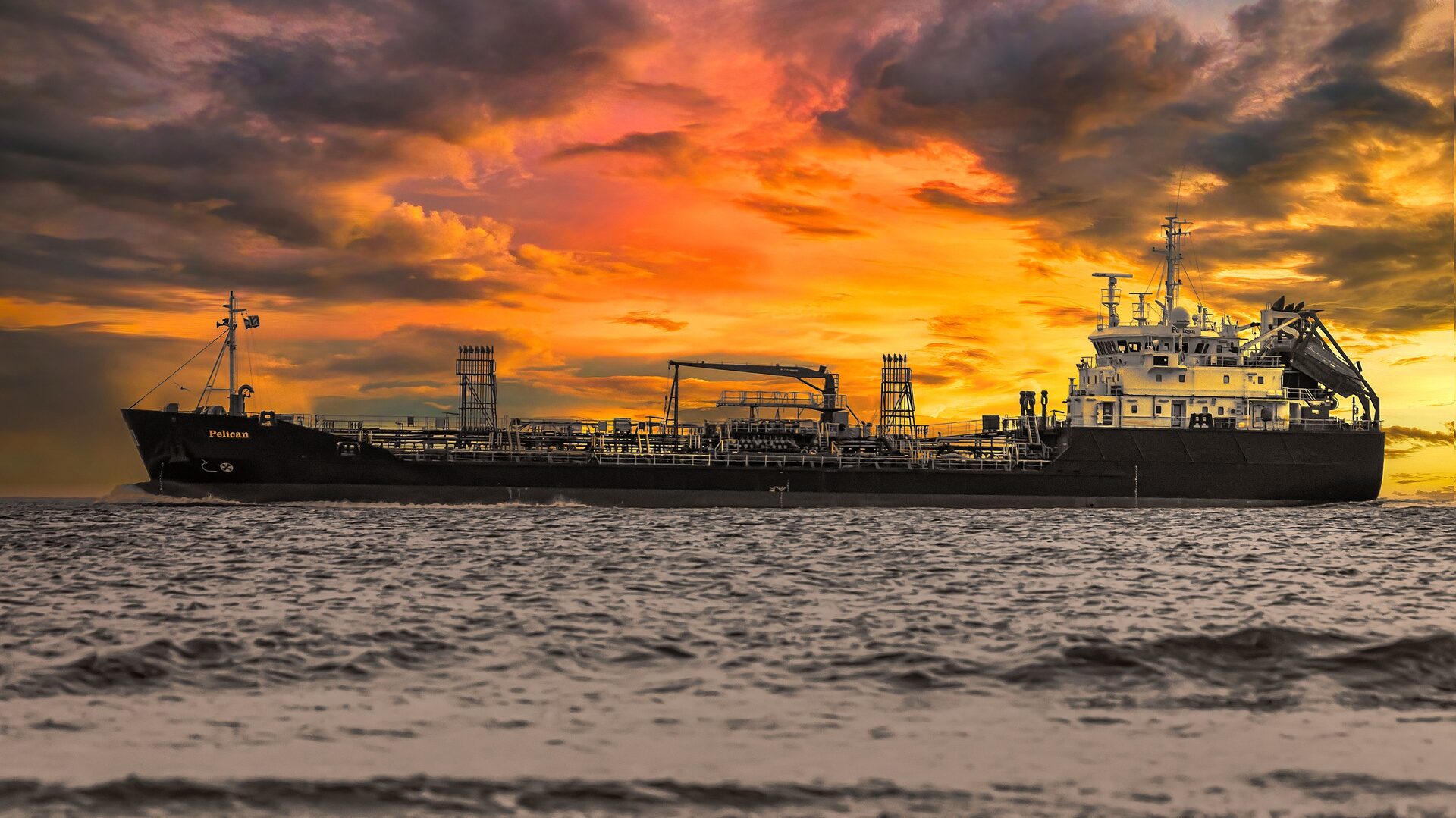What Are Logistics Services?
Dina Youssef

Introduction
In today’s rapidly evolving market landscape, effective logistics services are not just an operational necessity—they are a strategic asset. For small and medium-sized businesses, understanding and utilizing top-tier logistics solutions can profoundly enhance operational efficiency, customer satisfaction, and competitive edge. Stellar Logistix specializes in providing customized logistics solutions that help businesses like yours streamline operations, reduce costs, and improve service delivery. This article will delve into what logistics services entail and how various offerings, such as Less-than-Truckload (LTL) and International Air & Ocean freight, can transform your supply chain operations.
Understanding Logistics Services
Logistics is not just about moving items from one place to another; it’s a critical business function that impacts everything from the global economy to the minute details of consumer satisfaction. Effective logistics management involves the integration of information, transportation, inventory, warehousing, material handling, and packaging, and occasionally, security.
- Transportation: This is perhaps the most visible facet of logistics. Transportation refers to the movement of goods and materials from suppliers to receivers. It can be managed through a variety of modes including air, sea, rail, and road. Each mode has its own set of advantages and is chosen based on speed, cost, and the nature of the goods being transported.
- Warehousing: Effective warehousing ensures that goods are safely stored, managed, and distributed. Modern warehouses are not just about storage but are dynamic spaces that utilize sophisticated systems to manage inventory levels, optimize space and streamline picking and packing processes. They can be strategically located to minimize transport costs and maximize speed to market.
- Inventory Management: A cornerstone of logistics, inventory management involves the supervision and control of the ordering, storage, and use of components that a company will use in the production of the items it will sell as well as the management of the quantities of finished products for sale. Effective inventory management can reduce costs, improve fulfillment rates, and boost customer satisfaction.
- Order Fulfillment: This is the complete process from point of sales inquiry to delivery of a product to the customer. Efficient order fulfillment is crucial as it directly affects the customer experience by ensuring timely delivery and high-quality service.
- Supply Chain Management: This encompasses all logistics management activities noted above but also includes manufacturing operations, and it drives coordination amongst all parties involved in the production and distribution network. Good supply chain management can create a seamless flow of goods, enhance the efficiency of the supply network, and contribute to cost containment.
- Reverse Logistics: Often overlooked, this involves the process of moving goods from their typical final destination for the purpose of capturing value, or proper disposal. Reverse logistics operations include remanufacturing, refurbishing, recycling, and even re-packaging and distributing. It is increasingly becoming a key element of logistics and supply chain management, reflecting a broader societal awareness of environmental issues.
By effectively managing these logistics components, businesses can not only reduce expenses and improve efficiencies but also increase customer satisfaction and loyalty. In the modern economy, logistics is not merely an operational necessity but a strategic tool that can be harnessed to build better business efficacy, create market differentiation, and elevate competitive advantage. Stellar Logistix understands these complexities and offers solutions that help businesses harness the full potential of their logistics operations.
Types of Logistics Services
Stellar Logistix offers a wide array of logistics services tailored to meet the specific demands of various industries and customer needs. Here’s an in-depth look at each service and how they can benefit your business operations:
- Less-than-Truckload (LTL): LTL shipping is perfect for businesses that have freight under 15,000 pounds and do not require a full trailer. This service is cost-effective as you only pay for the portion of the trailer used, while the rest of the cost is shared with other shipments. LTL shipments are consolidated with other loads heading in the same direction, optimizing both cost and efficiency.
- Partial Truckload: This service fills the gap between LTL and full truckload shipments. It’s ideal for freight that exceeds the typical LTL standards but doesn’t need the space of an entire trailer. Partial truckload offers faster delivery times since there are fewer stops for loading and unloading. Additionally, it often provides more flexibility in terms of freight handling and scheduling.
- Full Truckload (FTL): When your cargo is enough to fill a truck, or you require a dedicated trailer for a large shipment, FTL is the way to go. This service minimizes handling risks as the freight is not transferred en route, providing a higher security level and reducing the chances of freight damage. It’s particularly beneficial for high-value or fragile items, ensuring they arrive safely and on time.
- Temperature-Controlled LTL: For goods that need to be kept at specific temperatures throughout the transportation process, temperature-controlled LTL is essential. This service is crucial for industries like pharmaceuticals, food and beverage, and other perishables. It ensures compliance with safety standards and maintains product integrity, thus preventing spoilage and loss.
- Intermodal Shipping: Utilizing multiple forms of transportation, such as combining rail and truck, intermodal shipping is a cost-effective and environmentally friendly option. It reduces fuel usage and greenhouse gas emissions, making it a preferred choice for businesses committed to sustainability. Moreover, it can offer more reliable transit times and lower rates over long distances.
- International Air & Ocean: For global trade, air and ocean freight services are indispensable. Air freight is fastest, suitable for time-sensitive shipments, whereas ocean freight can carry much larger volumes at a lower cost, making it ideal for bulky goods that are not time-critical. These services help businesses reach new markets and support international growth with greater ease and efficiency.
- Specialized Transport: Some cargoes require special handling due to their size, shape, or sensitivity. Stellar Logistix’s specialized transport services ensure that oversized, heavy, or high-value shipments are handled with the utmost care. Whether it’s industrial equipment, aerospace components, or artwork, these cargoes receive tailored handling and security measures.
- Small Parcel: This service is designed for quick delivery of smaller, lighter packages. Ideal for e-commerce, small parcel delivery often includes comprehensive tracking systems, flexible delivery options, and expedited timelines, enhancing customer satisfaction and encouraging repeat business.
Each of these services is supported by Stellar Logistix’s advanced logistics technology, expert staff, and robust customer service framework, ensuring that regardless of your business size or sector, your logistics needs are met with precision and reliability.

The Benefits of Outsourcing Logistics Services
Outsourcing logistics to a dedicated provider like Stellar Logistix allows businesses to focus on core competencies while reaping numerous benefits:
- Cost Efficiency: By leveraging the provider’s resources, you avoid the capital outlay in warehousing, fleet management, and technology.
- Scalability: Adapt your logistics needs based on business size and seasonal demands without additional overhead.
- Enhanced Capability: Take advantage of the latest innovations in logistics technology, such as real-time tracking and automated inventory systems, for improved accuracy and service quality.
- Risk Management: Experienced logistics providers mitigate risks associated with supply chain disruptions through proactive management and contingency planning.
Choosing the Right Logistics Partner
Selecting a logistics partner is a pivotal decision for your business, impacting everything from your supply chain efficiency to customer satisfaction and overall cost management. When considering different logistics providers, it’s essential to assess several key factors that ensure you choose a partner who can not only meet but also enhance your business operations.
- Experience and Reliability: Start by evaluating the provider’s track record. Look for a company with a robust history of reliability and expertise in your specific industry. A seasoned logistics partner will have navigated various challenges and can offer proven solutions that are likely to work for your business as well.
- Technological Capabilities: In today’s digital age, having a logistics partner with advanced technology is crucial. This includes systems for tracking and managing inventory in real-time, automated warehousing solutions, and efficient transportation management systems. These technologies not only increase operational efficiency but also provide transparency and enhance decision-making capabilities.
- Range of Services: Ensure that the logistics provider offers a comprehensive range of services that match your specific needs. Whether you need specialized transport, international shipping capabilities, or robust domestic distribution, the right partner should offer flexible solutions that can scale with your business.
- Sustainability Practices: With increasing awareness of environmental impacts, consider a logistics partner committed to sustainability. This includes practices like using eco-friendly packaging, optimizing delivery routes to reduce carbon emissions, and supporting intermodal transport options that lower environmental footprints.
- Customer Service: Exceptional customer service is essential. Your logistics partner should be responsive, able to handle inquiries and resolve issues quickly. A partner that prioritizes customer service can greatly enhance your company’s reputation and ensure smooth operations.
- Cost Structure: Understand the pricing models and cost structures of potential logistics partners. Look for transparency in pricing to avoid unexpected charges. A good partner will offer competitive pricing without compromising on service quality.
- Customization and Flexibility: Finally, your logistics provider should be flexible and able to customize services to fit your business’s unique needs. The ability to adapt to changing market conditions and customer demands is a critical attribute of a reliable logistics partner.
Stellar Logistix exemplifies these qualities, making us a trusted partner for numerous businesses across diverse industries. Our commitment to technology-driven solutions, customer-centered service, and scalable logistics options ensures that we meet your needs efficiently and effectively, helping you achieve your business objectives.